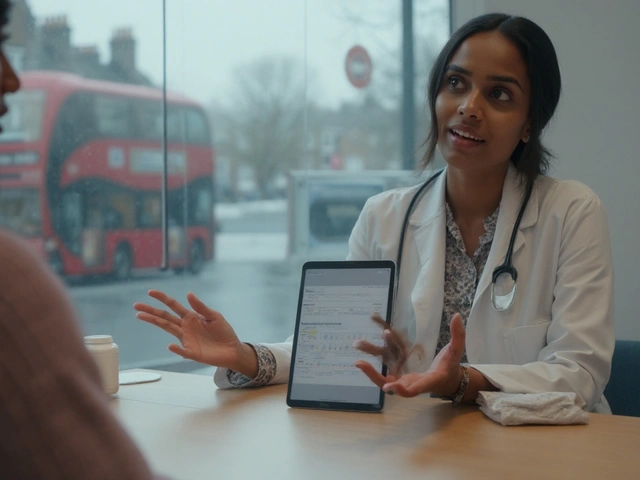
Antiretroviral Drugs – Quick Facts for Anyone on HIV Treatment
If you or someone you know is starting HIV treatment, the world of antiretroviral drugs can feel overwhelming. In plain English, antiretrovirals (often called ARVs) are medicines that stop the virus from multiplying, keeping the immune system strong and preventing illness.
In the UK, the NHS provides most of the common ARVs for free or at a low cost, so you don’t have to hunt for expensive overseas versions. The key is to understand which class of drug you’re on, what side‑effects to expect, and how to stay on schedule.
Main Classes of Antiretroviral Drugs
There are four big families you’ll hear about:
- NRTIs (nucleoside reverse transcriptase inhibitors) – the backbone of most regimens. Examples: tenofovir, emtricitabine, abacavir.
- NNRTIs (non‑nucleoside reverse transcriptase inhibitors) – often paired with NRTIs. Think efavirenz or rilpivirine.
- Protease inhibitors (PIs) – block a viral enzyme. Common ones are lopinavir/ritonavir and darunavir.
- Integrase strand transfer inhibitors (INSTIs) – the newest class, very effective with few side‑effects. Dolutegravir and bictegravir are popular choices.
Most people take a combination pill that mixes two or three of these families into one tablet a day. This makes it easier to remember and reduces the chance of resistance.
Staying Safe and Adherent in the UK
Adherence – taking every dose on time – is the single biggest factor in keeping the virus suppressed. Set an alarm, use a pill‑box, or link your dose to a daily habit like brushing teeth.
Side‑effects differ by class. NRTIs can cause mild kidney changes or bone loss; NNRTIs sometimes bring vivid dreams; PIs may give stomach upset; INSTIs are usually gentle but can cause temporary weight gain. If anything feels off, contact your pharmacy or GP right away. Most issues can be tweaked with a dose change or a switch to another drug.
When you need a refill, the NHS online system (e.g., NHS App) lets you order a new supply without a trip to the clinic. Keep your prescription details handy, and ask the pharmacy about any small co‑pay you might owe.
Never buy “cheap” generic ARVs from unverified websites. Counterfeit drugs can be ineffective or harmful. Stick to registered UK pharmacies – they verify the medicine’s authenticity and follow strict safety checks.
Finally, remember that ARVs work best when paired with a healthy lifestyle: balanced diet, regular exercise, and staying up‑to‑date with vaccinations. If you ever feel isolated, many UK charities and support groups offer free advice and peer chats.
Bottom line: antiretroviral drugs are powerful tools that keep HIV under control. Knowing the class you’re on, watching for side‑effects, and using NHS services will help you stay healthy and avoid surprises.
-
21 Sep






